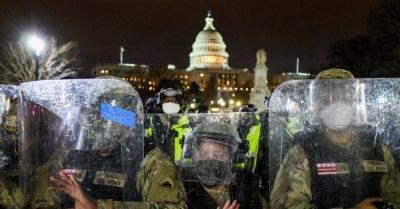New Photos Show Just How Bad Mass Coral Bleaching Is On The Great Barrier Reef
Australia’s Great Barrier Reef is experiencing one of the most extensive and serious coral bleaching events in recorded history after a summer of extreme temperatures and oceanic heat effectively cooked the delicate corals that make up the iconic structure.
The Australian Institute of Marine Science recently completed an intensive, large-scale survey of the reef, which is a system of about 3,000 individual reefs that stretches nearly 1,500 miles along the coastline. For the first time, extreme levels of bleaching have been seen along all regions of the Great Barrier and around 75% of the reefs surveyed showed signs of prevalent bleaching.
Aerial photos released Wednesday show the widespread devastation underway after some areas of the reef were hit by record levels of heat.
The reef has been under severe pressure for a decade following five mass coral bleaching events, in 2016, 2017, 2020, 2022 and 2024.
Scientists declared the latest event in March and noted that the slate of back-to-back events is not normal. There is no evidence of any widespread bleaching along the Great Barrier in the last 500 years of coral record history. The one thing that’s shifted? Climate change.
“Climate change remains the biggest threat to coral reefs globally,” David Wachenfeld, the research program director at the Australian Institute of Marine Science, said at the time. “It causes more frequent and severe marine heatwaves, leading to shortened windows of recovery for corals from bleaching and other disturbances.”
Coral bleaching happens when the delicate structures are stressed by a change in conditions, mainly a shift in temperature. The polyps that make up corals then expel the symbiotic, colorful algae inside them and they turn ghostly







